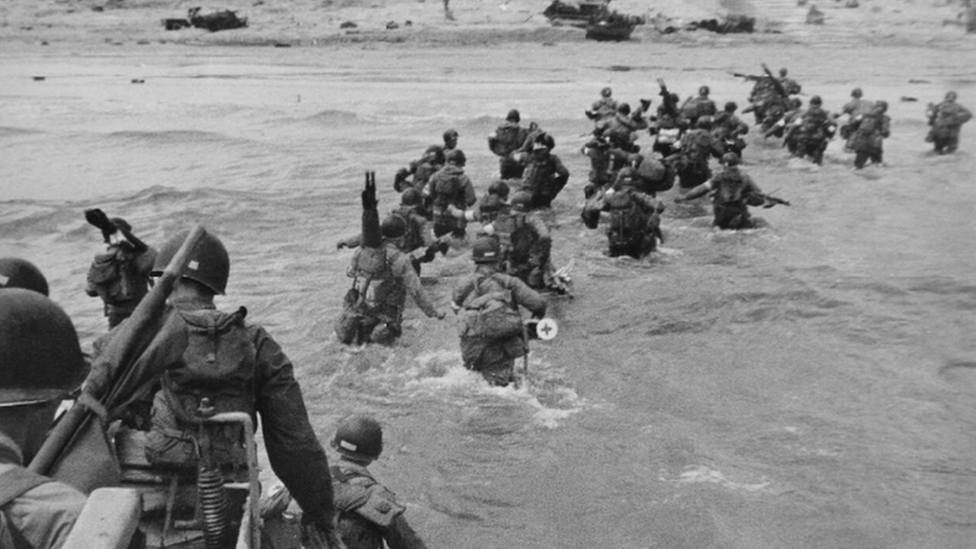Navy veteran dies days before D-Day anniversary
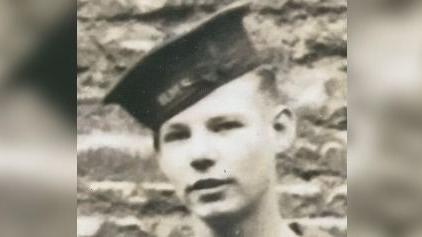
Able seaman Lewis Curl served in the Royal Navy from 1942 to 1946
- Published
An armed forces veteran has died just days before the 80th anniversary of D-Day.
Often deployed from Portsmouth Naval Base, Lewis Curl served in the Royal Navy from 1942 to 1946.
He was a cypher coder on HMS Belfast and was granted leave. But after returning to Portsmouth, he was recalled to join HMS Dacres off the coast of Normandy.
Mr Curl passed away at St Richard’s Hospital in Chichester on 22 May, aged 98.
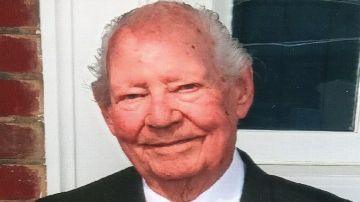
Mr Curl was awarded the 1939/45 Medal, the Victory Medal, Atlantic Star and Bar, Burma Star, France and Germany Star and Civil Medal
After the telegram arrived, instructing him to head to Le Harve, the 19-year-old discovered the only available ship was a freighter packed with army lorries, according to the Royal Navy, external.
As it reached the French coast, the vessel was bombed and sank.
Surviving this, he swam ashore and walked along the coast in the dark until he reached the naval base.
Mr Curl was then taken to HMS Dacres, which was anchored nearby.
"Able Seamen do not get piped aboard ship," the Royal Navy said. But Mr Curl did.
"An officer took him to one side and told him the ship’s company had bets on if he was going to make it. The odds were against him."
HMS Dacres then left for the Bay of Biscay for submarine boat surveillance, and the crew were able to secure German code books.
The only survivor
In 1945, Mr Curl arrived in Glasgow for the VE Day celebrations, before immediately leaving for Portsmouth once again to join HMS Swiftsure, which was bound for the Far East.
The crew spent their time “pushing mines away from the ship with long poles”, according to the Royal Navy.
Mr Curl picked up a tropical disease while searching for the presence of Japanese personnel and was taken to hospital.
The hospital was then evacuated - but Mr Curl and four others were left in the ward after being deemed too ill to move.
A week later, he was found to be the only remaining survivor.
He was then repatriated back to the UK on HMS Barfleur.
Follow BBC South on Facebook, external, X (Twitter), external, or Instagram, external. Send your story ideas to south.newsonline@bbc.co.uk, external or via WhatsApp on 0808 100 2240, external.
Related topics
More on D-Day 80
- Published6 June 2024
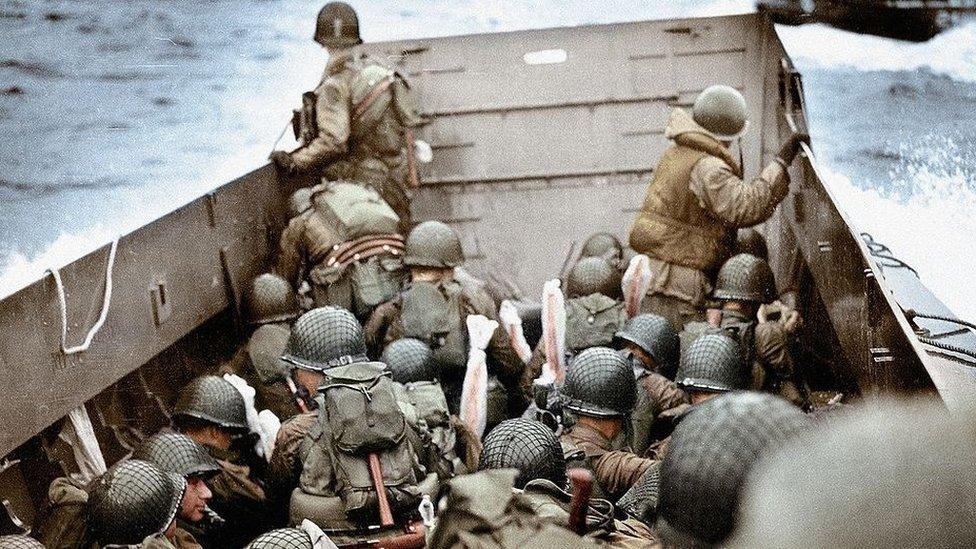
- Published3 June 2024
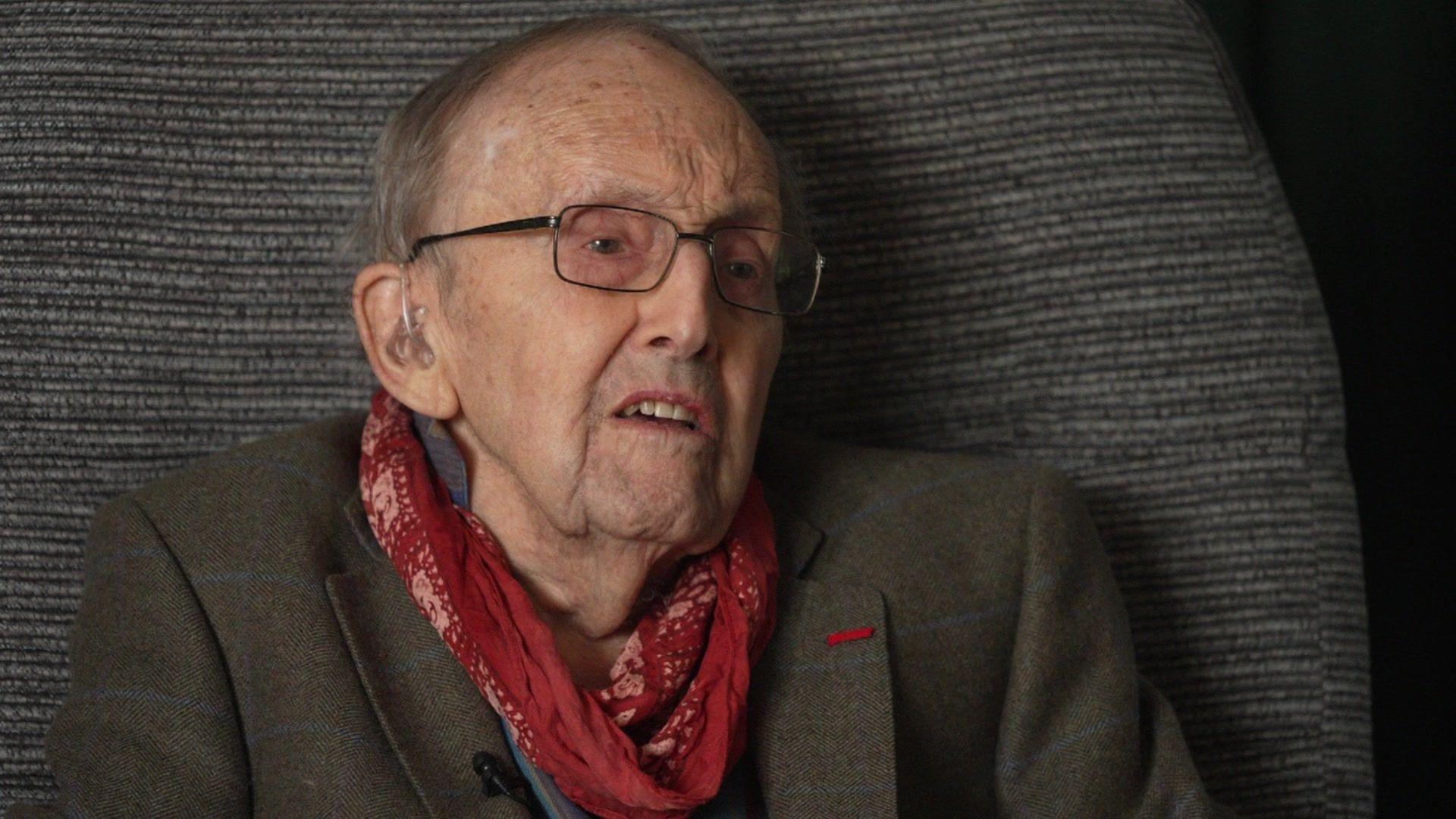
- Published23 May 2024
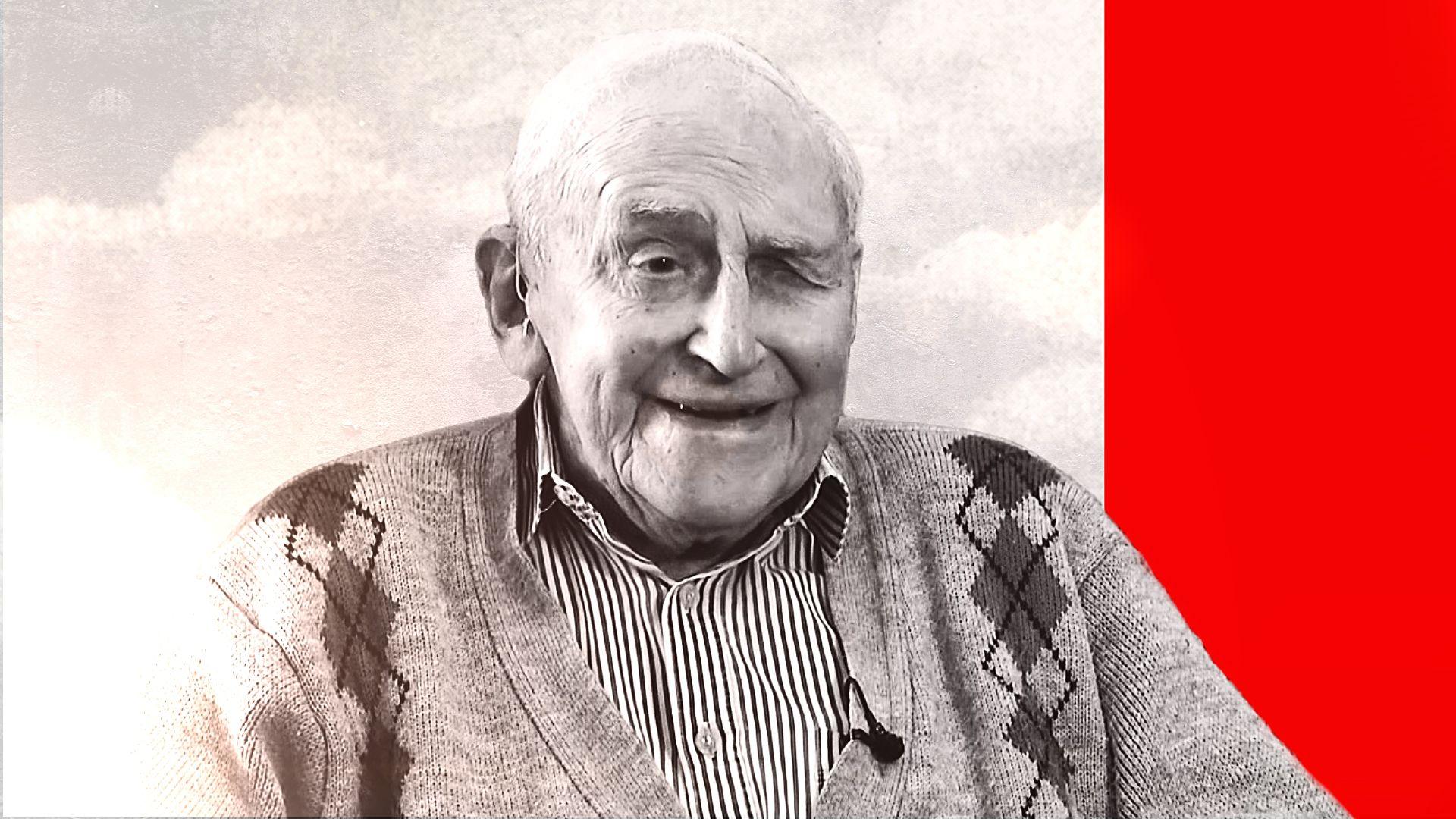
- Published5 June 2019
